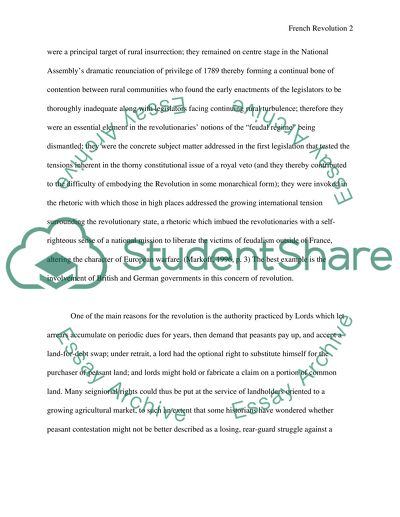Cite this document
(“Causes of the French Revolution Essay Example | Topics and Well Written Essays - 2000 words”, n.d.)
Retrieved de https://studentshare.org/miscellaneous/1517459-causes-of-the-french-revolution
Retrieved de https://studentshare.org/miscellaneous/1517459-causes-of-the-french-revolution
(Causes of the French Revolution Essay Example | Topics and Well Written Essays - 2000 Words)
https://studentshare.org/miscellaneous/1517459-causes-of-the-french-revolution.
https://studentshare.org/miscellaneous/1517459-causes-of-the-french-revolution.
“Causes of the French Revolution Essay Example | Topics and Well Written Essays - 2000 Words”, n.d. https://studentshare.org/miscellaneous/1517459-causes-of-the-french-revolution.


